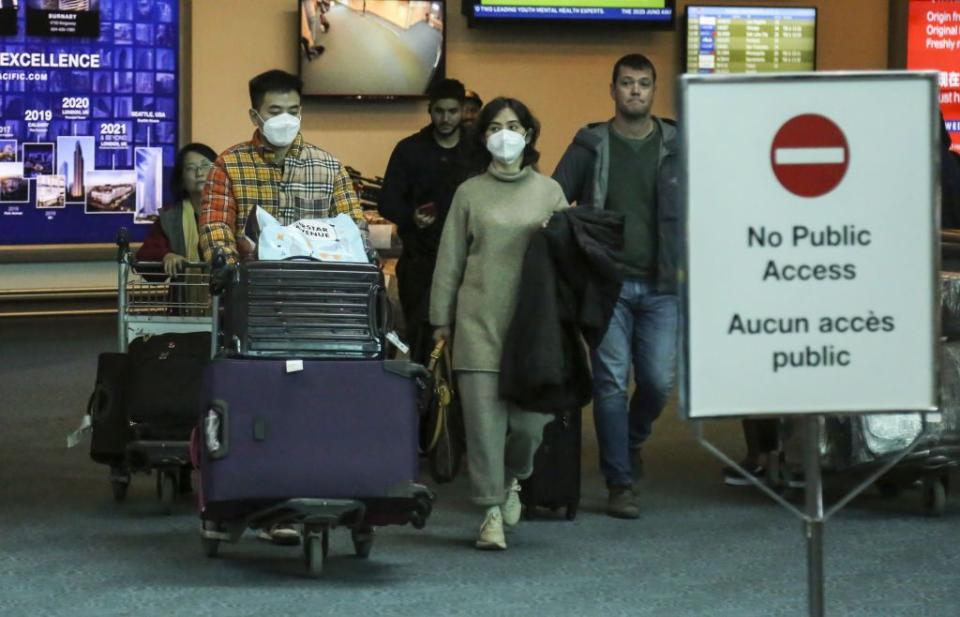Experts advise whether you should be wearing a coronavirus mask

The public health scare around coronavirus is ever increasing as the disease continues to spread at a rapid rate. At the time of writing, there have been more than 80,000 cases of coronavirus reported worldwide and over 2,700 deaths.
Many countries, including the UK and the US, evacuated citizens from the epicentre of the disease in China and placed them in quarantine for two weeks. Regardless, the presence of the virus in Europe has now increased. The UK Chief Medical Officers recently confirmed that they have raised the risk to the public from low to moderate in this country. Elsewhere, Austria and Croatia have just reported their first cases, and several towns in the northern Italian region of Lombardy have been placed on lockdown after a spike in incidences.
It's unsurprising, therefore, that you might have seen people wearing face masks on public transport and in busy areas in the UK, in a bid to prevent themselves from falling victim. So should you be heading to the nearest pharmacy to get one for yourself? Here's everything you need to know about the virus.
What is coronavirus?
A coronavirus is a type of virus. This specific coronavirus is called the Wuhan Novel Coronavirus and presents as a flu-like illness at first. As a group, coronaviruses are common across the world.
What are the symptoms of coronavirus?
Typical indicators of coronavirus include flu-like symptoms including fever and a cough. These symptoms may progress to shortness of breath and severe pneumonia. Generally, though, coronavirus has a worse impact on older people and those with weakened immune systems, perhaps because they suffer from other conditions like diabetes, cancer and chronic lung disease. Most cases appear to be mild and those who have died from it in Wuhan and elsewhere appear to have had pre-existing health conditions.

Should you be wearing a mask to prevent it?
Dr Jake Dunning, Head of Emerging Infections and Zoonoses, Public Health England, told Cosmopolitan UK that while face masks play an important role in clinical settings, such as hospitals, there is very little evidence of widespread benefit from their use beyond this.
"Face masks must be worn correctly, changed frequently, removed properly, disposed of safely and used in combination with good universal hygiene behaviours in order for them to be effective," Dunning advises.
"People concerned about the transmission of infectious diseases would do better to prioritise good personal, respiratory and hand hygiene.”
The upshot? Keep yourself clean, wash your hands, and hold your hand over your mouth if you cough.
Can coronavirus be stopped from spreading around the UK?
Sadly, it's hard to contain the virus. Some people might only show symptoms 14 days after exposure to an infected person and, as many of us travel around the world extensively, it's difficult to prevent the spread across borders. So far, there have been nine cases of Coronavirus confirmed in the UK, but the NHS still maintains "the risk to individuals remains low".
Public Health England says the UK is now one of the first countries outside China to have a prototype specific laboratory test for this new disease. To mitigate risk, the government is urging anyone who has recently travelled to the following places to stay indoors, avoid contact with others, and to call NHS 111 to inform them of your recent travel to the area.
Iran
Specific lockdown areas in Northern Italy as designated by the Government of Italy
Special care zones in South Korea as designated by the Government of the Republic of South Korea
Hubei province (returned in the past 14 days)
Doctors and other healthcare workers have also received advice about what to do if a patient presents with symptoms; if a person is diagnosed with the virus they will be transferred to a national specialist treatment centre.
Like this article? Sign up to our new newsletter to get more articles like this delivered straight to your inbox.
You Might Also Like

 Yahoo News
Yahoo News 
